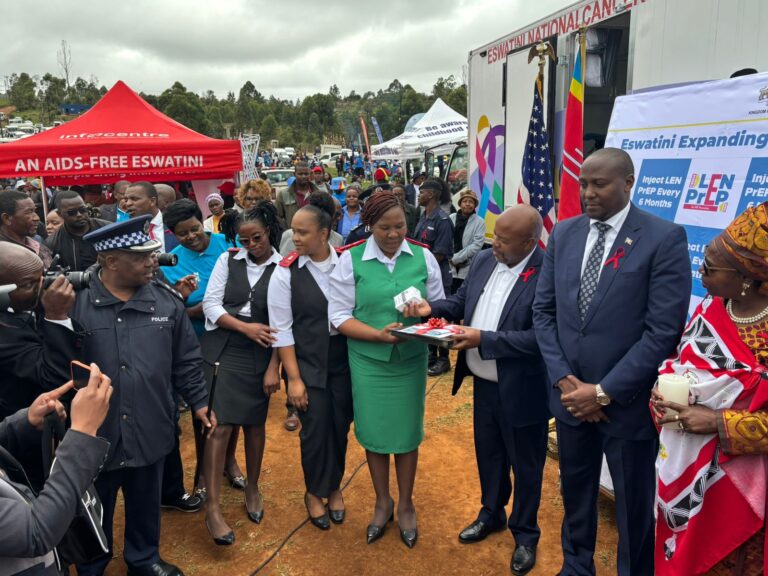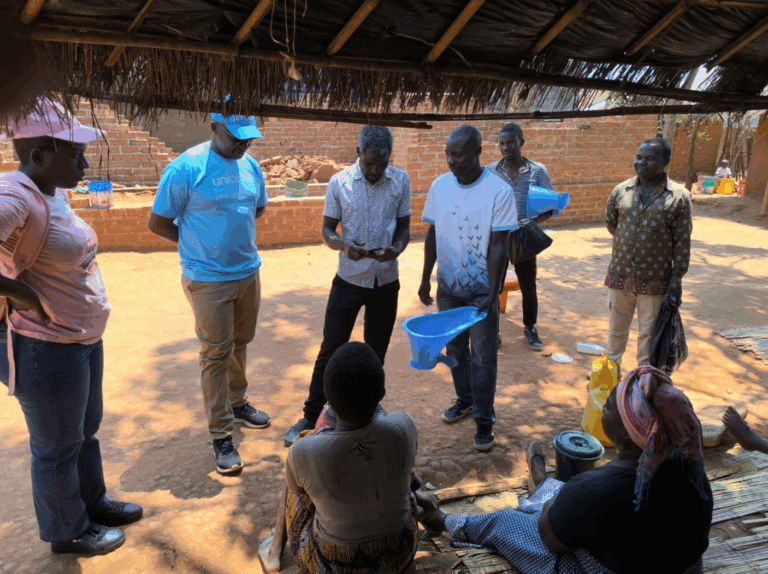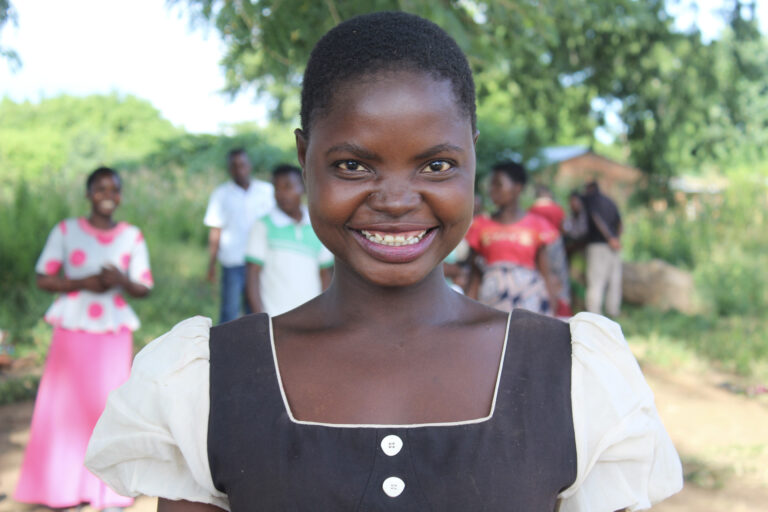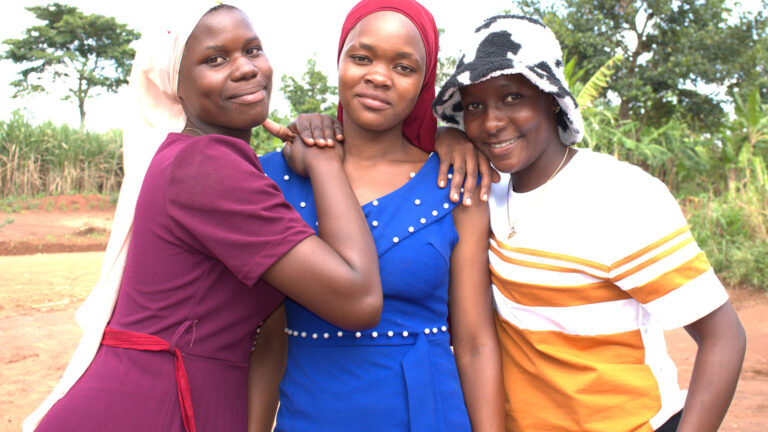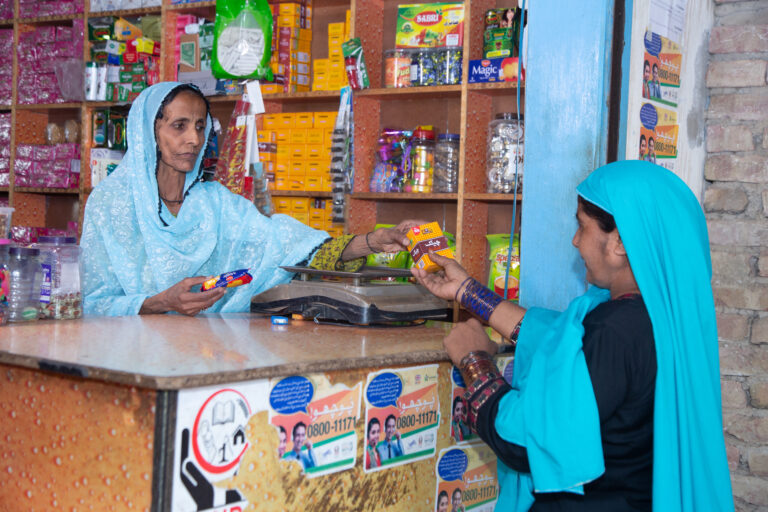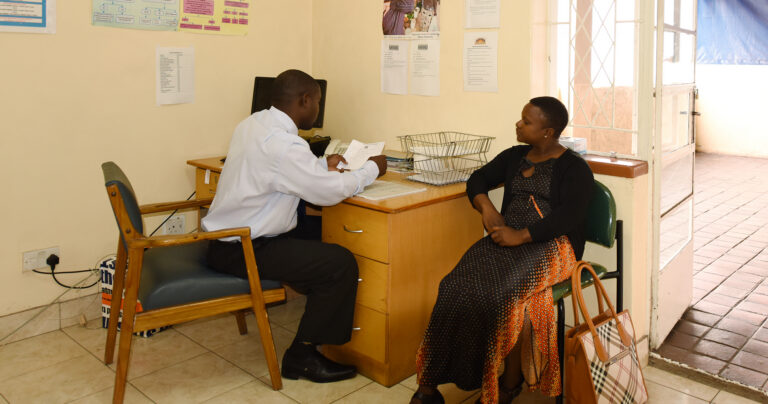By Malia Skjefte, Technical Advisor, PSI; and Luc Bankole, Communications Advisor, Plus Project Benin
Meet Assohoto Mahuna Dame, a 24-year old mother and bread seller living near the Zogbodome Health Center in Benin. As she strolled by the health center with her daughter Naomie, a community health worker (CHW) approached her for a friendly chat, in which she received information on the impact of perennial malaria chemoprevention (PMC) for children under two. This preventative measure, administered alongside routine vaccinations and vitamin A supplementation, plays a crucial role in averting malaria.
Upon realizing that Naomie had not yet received the malaria prevention interventions for her age group, Assohoto made a proactive decision. She decided to take her daughter to the health center to ensure she received her first round of PMC treatment, coupled with routine vaccinations. This simple yet impactful step highlights the importance of community engagement in promoting health awareness and preventive malaria measures, helping mothers like Assohoto to make informed choices for the well-being of their children.
Like Naomie, there are millions of children around the world who can benefit from improved access to preventive services, including PMC, to protect them from malaria and anemia. As we’re reminded this World Children’s Day, every child has the right to live safe from life-threatening diseases.

Scaling malaria chemoprevention in Benin
Led by Population Services International (PSI), the Plus Project supports the adoption and scale-up of PMC in the project’s focus countries — Benin, Cameroon, Côte d’Ivoire, and Mozambique — towards reducing the morbidity and mortality from malaria and anemia among children in malaria-endemic countries of sub-Saharan Africa.
In Benin, the Plus Project has supported the Ministry of Health in distributing over 104,000 doses of sulfadoxine-pyrimethamine (SP), the drug provided for PMC, since its launch in 2022.
Raising awareness about malaria prevention
In October 2023, project team members visited selected health facilities throughout Benin to raise awareness for PMC through community engagement activities. Using mobile video units (MVUs) as a platform for informative and interactive presentations, project team members talked to caregivers about the impact of PMC, the PMC dosing schedule, and general information on malaria prevention.
Vaccination rates generally decline as children age, and women in Benin have reported difficulty tracking follow-up appointments or reading the handwriting in the child health cards, documents used to track basic health information, such as immunizations and nutritional status. To support increased PMC coverage, particularly for children 1-2 years old, the MVUs emphasized the importance of returning to the clinic for follow-up doses of SP. During the mobilizations, CHWs checked childhood health booklets to remind people of upcoming appointments and to refer anyone who missed appointments to the clinics.
Over 2,150 people participated in the MVU sessions, highlighting the reach and excitement for the project in Zogbodome. Excitement was also shared by Viviane Djouinkpo, a community health worker in the Hondjin district, who credits her visits to spread awareness for prompting new mothers to join her on vaccination day.
“I’m happy today because I brought fifteen mothers on vaccination day and all the children took the SP in front of me at the health center,” Viviane shares.
Identifying community-level barriers to PMC
The sessions also provided a key opportunity to learn from communities in Benin about the barriers they face in malaria prevention. Caregivers shared that the often long distances between health centers and their communities made it difficult for them to return with their child for follow-up doses. This prompted an advanced immunization strategy where vaccinations, vitamin A, and PMC are brought to communities with low coverage, helping reach children where they reside.
In addition, the awareness of the PMC dosing schedule is low among communities in Benin, resulting in missed doses. To address this need, the Plus Project is focusing on improving counseling during pregnancy and at post-partum health appointments, coaching community health workers to refer women to health centers, and supporting outreach vaccination clinics in the community.
World Children’s Day serves as a reminder of our collective responsibility to safeguard the well-being of every child. Through initiatives like the Plus Project, we can actively contribute to creating a world where every child can access their right to health. Together, let us continue to champion child health and well-being, ensuring a future where every child not only survives but thrives.
Interested in The Plus Project? Contact Charlotte Eddis ([email protected]) to learn more.


